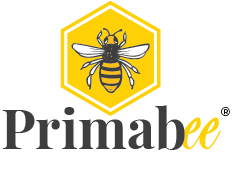Newsflash: Nearly 60% of CBD Products are Mislabeled and Contain THC — Why Third-Party Testing and Certificates of Analysis are Important

With the rising popularity of CBD, more and more CBD brands appear on the market. However, not all of them create high-quality CBD products, and many of them frequently mislabel their goods, which can be problematic. If you use CBD products or wish to try them, keep reading to find out why third-party lab testing and certifications of analysis are important, as well as how to select high-quality CBD products.
Mislabeling of CBD products
Since the 2018 Farm Bill approved a hemp growing with a THC content of less than 0.3 and the extraction of its cannabinoids, the CBD industry has developed rapidly.
The FDA published the results of their sample research on the existing CBD market, which found that many of the items tested were mislabeled, containing either less or more CBD than promised.
According to a recent study published in the journal Drug and Alcohol Dependence, approximately 60% of CBD products marketed in the United States do not correspond to the proportion of CBD indicated on the labeling. THC (tetrahydrocannabinol), the primary active compound for marijuana, was found in several THC-free CBD products tested in the lab.
Another study compared the chemicals indicated on the labels of cannabidiol products sold online to the actual product contents found by laboratory analysis. Regarding CBD, 42.85% of goods were mislabeled, 26.19% were over-labeled, and 30.95% were correctly labeled. Labeling accuracy varied by product type, with vaporization liquid being the most commonly mislabeled and oil being the most frequently precisely labeled.
Why is Mislabeling CBD Products a Problem?
The magnitude of the over-labeling of CBD products can trigger warning letters from the US Food and Drug Administration to businesses. Under labeling, CBD products are less problematic because CBD does not appear to have abuse potential or significant deleterious effects at large dosages, but the THC amount detected may be sufficient to cause intoxication or impairment, particularly in minors.
According to an associate professor of behavioral science at the University of Kentucky College of Medicine, even though most products included just trace levels of THC, they were enough to build up in the body and cause a person to fail a drug test. Indeed, according to a study conducted by Johns Hopkins researchers, the usage of CBD products containing less than 0.3% THC may result in a positive urine drug screening test result.
CBD Third-party Lab Testing
Third-party laboratories test CBD to guarantee that it contains no impurities like bacteria, fungus, or mycotoxins and a higher than lawful THC amount.
When something is tested this way, you essentially have proof from a third party in the form of a lab report that informs you precisely what the cannabis profile is in the product you purchased and where it was provided from. This is the only way to ensure you buy authentic CBD products. Every single premium-quality CBD product will undoubtedly have been through these lab tests.
Certificates of Analysis
A COA is an abbreviation for "Certificate of Analysis" and is one of the most powerful instruments for determining the quality and purity of a CBD product. It is also the most critical tool for ensuring you receive the CBD you have paid for. Because the CBD market is still unregulated, many untrustworthy CBD products are available. COAs can confirm that you are getting what you believe you are buying and that there are no additional components of the goods that could damage your health. These COAs also represent the company's dedication to openness and integrity in product labeling.
Tips for Choosing the Right CBD Product
The FDA does not regulate CBD products in the same way that prescription medications are. The lack of regulation might make it difficult for customers to find high-quality CBD products. The best way is to see if the product has been third-party lab tested and has a certificate of analysis (COA).
An indicator that a CBD company is concerned with quality is that they do not make health claims about their goods – the FDA does not permit such claims for CBD products.
Conclusion
As you've already learned, mislabelling CBD products is quite common. Although, in general, the health hazards caused by mislabeled CBD products are pretty low, they still can negatively affect people, such as those taking drugs for specific health issues.
Seeking a certificate of analysis will ensure you're buying a high-quality CBD product that has been thoroughly tested.





Leave a comment